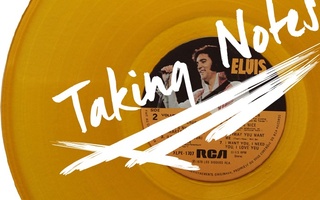When we think of the digitization of 21st-century library material, something that happened 500 years ago rarely comes to mind. But consider this: In 1535, French monarch Francis I took the unusual step of approving a ban on the printing of any books in his realm. He did so in a moment of extreme paranoia that swept much of Europe in response to the rise of Martin Luther. Fortunately, this decidedly un-free edict did not last long, and so early modern Europe’s flourishing publishing industry returned to printing in France, while Lutherism continued to make strong headway everywhere.
The analogy is far from a perfect one, but Protestant-frightened France does offer compelling example of the futility of attempting to censor the dissemination of new ideas through technology. Today, the new idea—or, to put it better, an old idea that finally stands a good chance of succeeding—is mass accessibility to learning and reading. The vehicle driving us to success is online digitization, while fruitless opposition sits in the form of well intentioned but outdated federal copyright laws.
Earlier this month, it became apparent that the Digital Public Library of America, based at Harvard’s Berkman Center for Internet and Society and founded primarily by Harvard University librarian Robert C. Darnton ’60, has encountered not insignificant trouble with existing copyright laws in its effort to launch the world’s most comprehensive database of free, high-quality online material. In particular, the DPLA seems likely to become embroiled in protracted legal discussions over issues of fair use and the proposal for a “moving wall” of copyright with regard to digitization. The problem of sorting out our messy copyright situation in the digital age is best left to lawyers and experts in the field. Copyright holders are right to assert their rights and to fight to ensure that a future exists in which they will still be compensated and future originators of content will remain incentivized to put the effort into producing much-needed work.
That said, the DPLA hardly threatens to exploit current copyright holders and law. Its founders have repeatedly expressed the view that their organization’s values are aligned with those of authors and publishing houses. Instead, Darnton and the organization he helped spearhead seem to have recognized that the flow of information is headed increasingly online. Books appear and are consumed increasingly in digital form, and a plethora of opportunities still exist for the private sector to take advantage of this shift. And while material may be headed inexorably online, no cogent argument stands to presume that free access will remain a given.
The DPLA, however, states as its mission to prioritize the accessibility of books and education for their own sakes, an aim entirely consistent with the goals of physical libraries. This is profoundly in the interest of the global public good. When the trend toward the digitization of written content appears inevitable, a project that ultimately seeks to benefit both the avid consumer and the producer deserves to succeed.
Federal copyright law exists for a purpose and must be defended to ensure that authors and artists are rewarded for their achievement and stay committed to their contributions. But in order for copyright regulation to survive in a rapidly changing landscape in which it appears in grave danger of becoming irrelevant, it must adapt. Adapt, and reward those that seek to be fair to creators and prioritize accessible learning.
Read more in Opinion
We Need to Talk About AdamRecommended Articles
-
Harvard Library To Contribute "Crown Jewels" to Digital Public Library of AmericaWhen the Digital Public Library of America officially launches on April 18, 2013, anyone with access to a computer will be able to study and enjoy the “crown jewels” of Harvard’s Library system, which spans 73 physical libraries and approximately 17 million volumes.
-
Copyright Laws Slow DPLAAs the Digital Public Library of America approaches its April 2013 launch, copyright laws still hinder the library’s ability to make a wide array of written materials accessible to the public.
-
Law School Debuts First Online CourseHarvard Law School’s first ever online course launched Monday, opening up “Copyright,” a class taught by Law School professor William W. Fisher, III, to hundreds of people worldwide.
-
An Orphan Crosses His TracksThe US must take notice of these reforms and implement them to allow the use of orphaned works for the advancement of arts and science, for the continued innovation and growth in our economy.
-
 Taking Notes
Taking Notes -
 Liberation Music Sued a Harvard Law Professor... Guess What Happened Next
Liberation Music Sued a Harvard Law Professor... Guess What Happened Next













